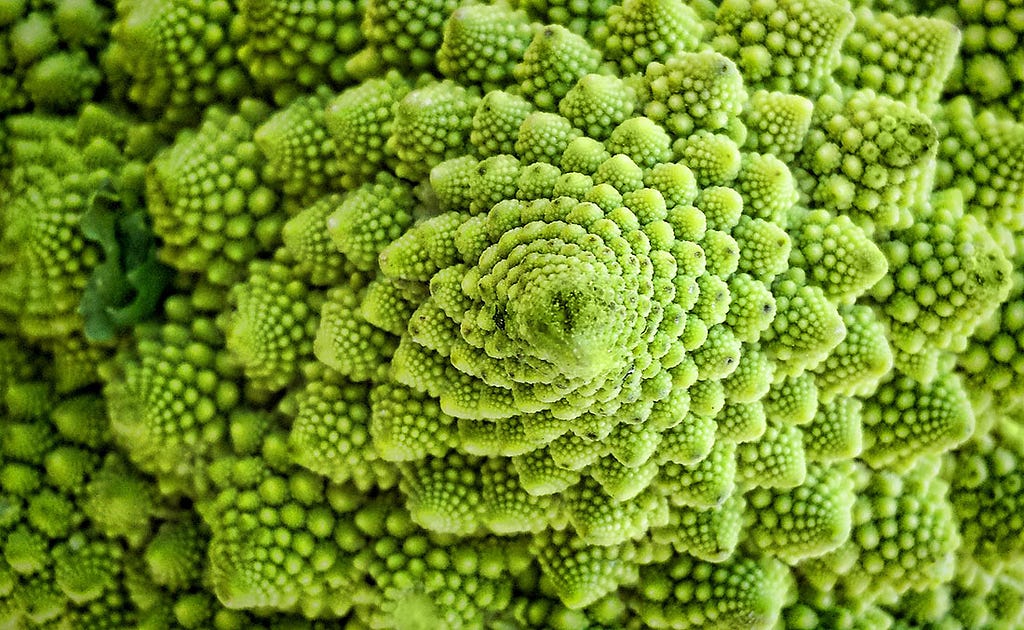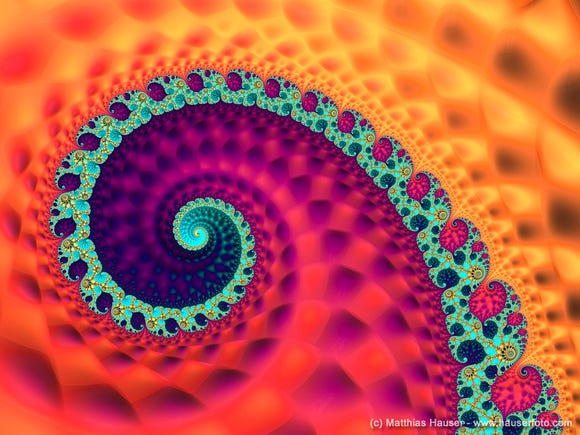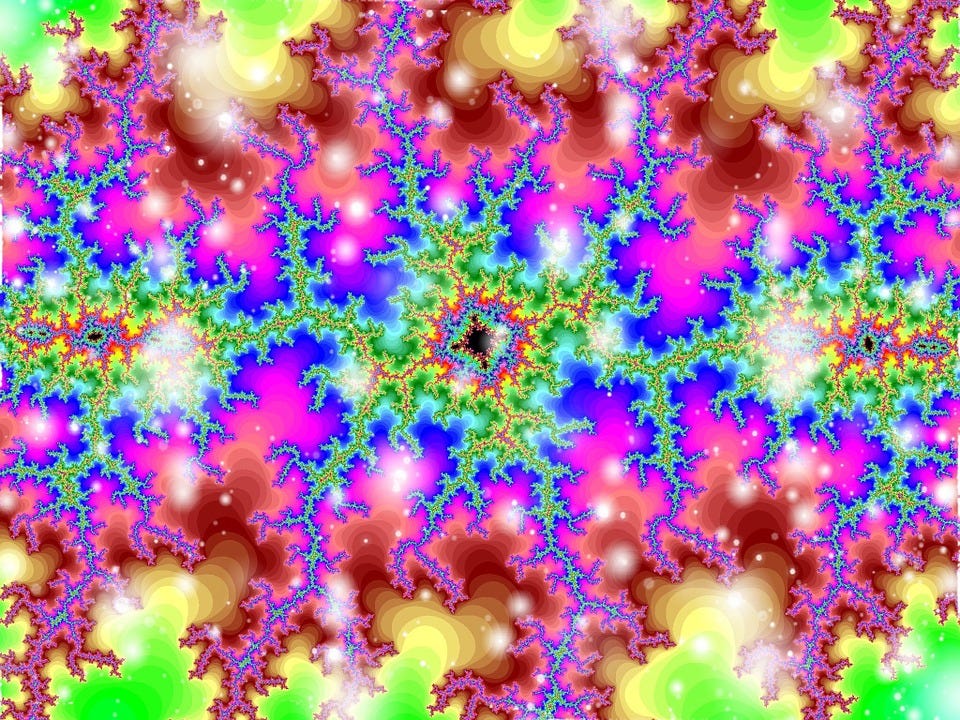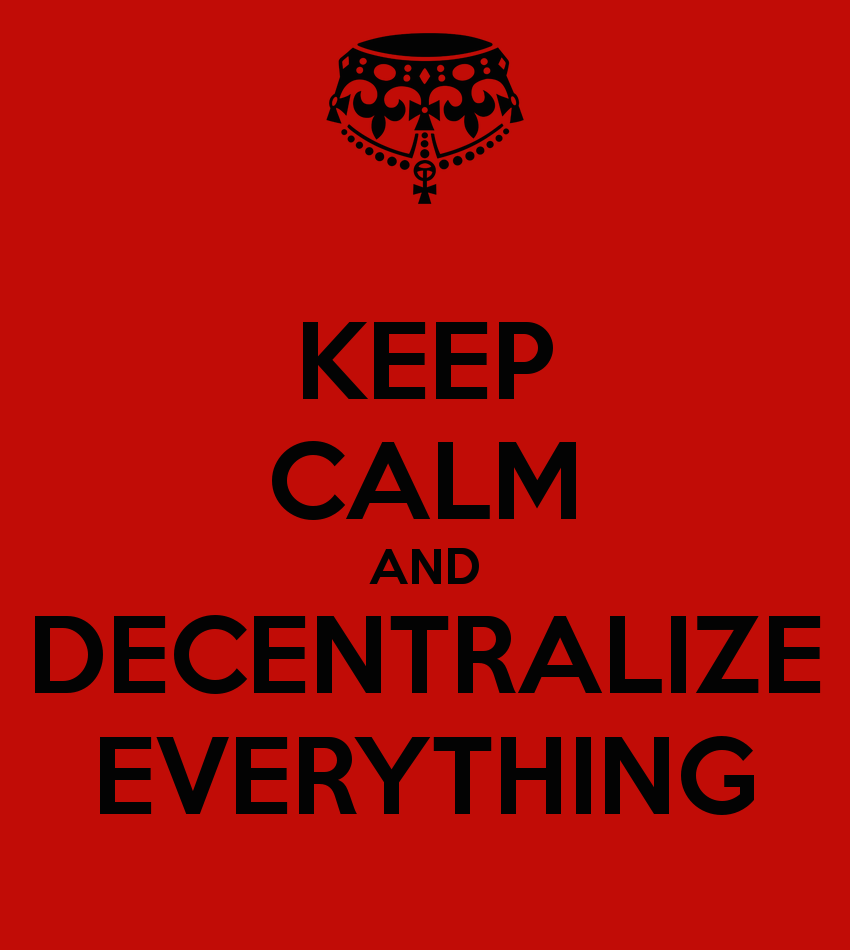Latest news about Bitcoin and all cryptocurrencies. Your daily crypto news habit.
After working in blockchain startups, winning hackathons, and going to meetups one of the overarching buzzwords in blockchain is Decentralization. Do we know what that actually means? We always talk about the high-level values such as transparency, equality, and efficiency of these systems yet we rarely discuss the tangible actions we must individually take to create this Decentralized world. This article is an exercise to help us imagine what behaviour we want society to have in the future and figuring out what actions can be taken today to get there. So what are the “ten commandments” that the crypto community must follow to fully realize our utopian dream?
Blockchain is not an answer. Delegating social responsibilities to technology can only get you so far. If we really want to change the world we have to take small steps as human beings every day to recreate the world in our vision. Some of the practices might not make sense in today’s world because they are supposed to shape today’s world into tomorrow’s. You are no longer “you” in a Decentralized world because you will have to reimagine yourself to be able to exist there. To get something you never had, you have to do something you never did.
At this point the opinions start to diverge drastically, there are the anarchists that want to abolish any representation of state while others want minimum viable centralization. I am personally of the opinion that Decentralization is not the end all be all, there is a time and place for everything and we should take our inspiration from self-organizing principles in nature. Each atom is its own being that can freely travel the universe with its own objectives and purpose. In a truly Decentralized world Hydrogen and Oxygen would never come together and create H2O without which water and life on Earth could not exist. This is a perfect example of how centralization can add value to an ecosystem.
 Self-organizing systems are everywhere in nature. Cauliflower creates fractals based on simple instructions in it’s genetic code.
Self-organizing systems are everywhere in nature. Cauliflower creates fractals based on simple instructions in it’s genetic code.
At ConsenSys we like to think we represent, or even lead, the blockchain/Decentralized movement. If that is the case we can’t just talk the talk, we have to walk the walk. If we do not live by the values we preach then we can never create the Decentralized products or society that we want.
“Organizations which design systems … are constrained to produce designs which are copies of the communication structures of these organizations.”— How Do Committees Invent?, M. Conway
My Principles of Decentralization
So what is my vision of the future world? That would take more than a blog post but I will summarize. My beliefs of the world are heavily influenced by biomimicry, chaos theory, and anarcho-capitalism. (FYI Bitcoin was made by anarchists, for anarchists) Essentially this means I look to the universe for answers and favor self-organizing open systems of exchange that provide feedback loops for individuals to adapt their behavior and optimize for their current environment. What this looks like in the reality of human society is fairly basic, here are my proposals for Decentralized practices:
- I choose to collaborate rather than compete,
- I am internally motivated
- I take a holistic view and avoid reductionism
- I am open and honest when communicating
- I only act in accordance with my personal values
- I embrace the chaos and capitalize on every opportunity
If you notice I chose to describe an ideal individual instead of a whole society, there are a few reasons why. 1) This goes back to the reason for this article that we are too caught up in ideals and not on the real world actions that are necessary to manifest our dreams in reality. 2) Not everyone will share the same utopian view that I have but we can agree on basic practices. Imagine if religions took this approach, they mostly share the same values but not the same dreams. We could avoid so much conflict by sticking to actionable practices in this world. 3) By acknowledging that only I am in control of my actions then I must devote my time and energy to only what is important to me and what I can influence. 4) The more true to ourselves we are, the more we realize that we are just one part of some larger interconnected web of life and consciousness.
“Out of clutter find simplicity; From discord find harmony; In the middle of difficulty lies opportunity” — Albert Einstein
 Abstract examples of fractals. Chaos can be beautiful too!
Abstract examples of fractals. Chaos can be beautiful too!
From Principles To Actions
From my list of principles I came up with a set of questions to ask myself everyday to stay on track. These are meant to be guides that help my re-align with my purpose and objectives in life.
What do I value?This is the North Start guiding your actions for the whole day and your life. On a day to day basis my answers to this question are incredibly simple such as “my dog’s happiness” and “eating healthy food”. In the long term they are more complex like “the quality of my work” and “my relationship with my parents”.
Where do I belong?Being in the place that complements who I am as a person impacts my emotions, thoughts, and productivity. Knowing where I truly belong and being able to find it is skill that has had a profound influence on my life.
Physical — Work at the office or at home? Do I need the forest or the beach this weekend?Social — Am I a team member, coach, or leader? Do I fit in with this team and company? Would I be better in a corporation or startup?
What can I contribute?Knowing exactly what you have to offer is not always the easiest thing to know or communicate. Being mindful and creating a list of what you enjoy doing and are capable of lets you know where to focus your energy in the chaotic environment of the modern world.
Functional — Code, research, designs.Emotional — Support, empathy, a shoulder to cry on.Social — Leadership, my network.Intellectual — Thought provoking questions, data insights, creativity.
How can I be better understood? Realizing that I am just one part of the whole is just the first step. Communicating who I are and what my purpose is to the group helps everyone understand what my strengths and weaknesses are and where I belong in the organization. Being open about and actively challenging unstated assumptions and expectations can go a long way to improving relationships, organizational processes, and your state of mind.
The Takeaway
This is just an introductory list of what I personally believe in, I would be interested to see what others have to add. If you want to contribute there is a living document waiting for your additions. Originally I my list had things like active communication, empathy, and self-actualization but these seemed just as abstract as what we already use to describe Decentralization like transparency. Feel free to add your own practices, change the purpose for why this should exist, or explain why we should stay with centralized organizations.
Written by Kiba Gateaux with the help of Chris Frazier, inspired by talks with Jeff Silva and the Brand Design Circle at ConsenSys.
Everyday Practices To Create A Decentralized World was originally published in Hacker Noon on Medium, where people are continuing the conversation by highlighting and responding to this story.
Disclaimer
The views and opinions expressed in this article are solely those of the authors and do not reflect the views of Bitcoin Insider. Every investment and trading move involves risk - this is especially true for cryptocurrencies given their volatility. We strongly advise our readers to conduct their own research when making a decision.
